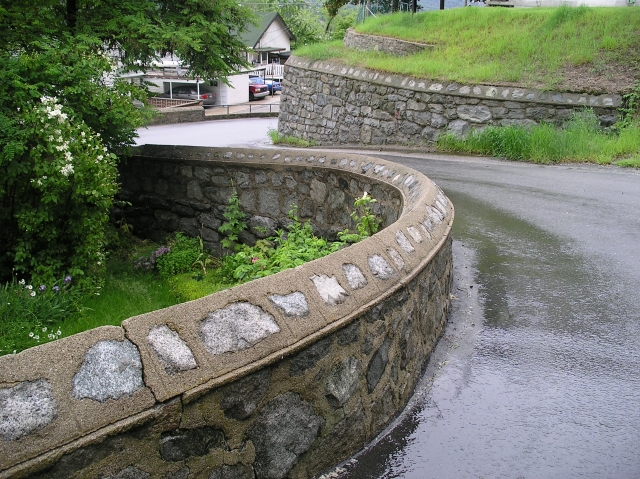City of Trail's quarterly newsletter highlights stone walls and local author
This story is an excerpt from the City of Trail’s quarterly newsletter. Watch The Champion for other local newsletter lore.
Trail’s Historic rocks walls and covered staircases offer one of B.C.’s best walking tours Local Trail resident Eileen Truant Pedersen has produced Set in Stone: A History of Trail’s Rock Walls, a coffee-table book that features a written and photographic history of the 70 covered staircases and rock walls that snake down the mountainside through the West Trail community.
The oldest rock wall is a block off Trail’s main street, where it has held up the hillside since 1925. But it was during the Great Depression that the City of Trail began putting people to work building the rock walls that support many of the streets, lanes and properties on the face of Lookout Mountain, high above the downtown business district. It was on this steep mountainside where many smelter workers and others built their homes, which would be served by rock and wood staircases.
“Most of the residents of West Trail didn’t have cars and they used the staircases to go back and forth to work at the smelter or downtown,” says engineering technician Warren Proulx, a lifetime resident of Trail.
For the first 50 years, City employees were dispatched to shovel snow off the 1,800 meters of stairs. Twenty-five years ago, the city began installing metal roofs to shelter users from snow and rain and to provide lighting for safety at night. Among the hundreds of people interviewed for the book were 15 stone masons or the families of those who built the rock walls, including 95-year-old Bill DiDomenico and Louie Bedin, who is now 75.
“I started in 1957, building the walls with a crew of two or three helpers,” Bedin recalls. “It was all manual work, splitting the rocks with sledgehammers and using steel bars to move the huge rocks into place. The work was so hard that I used to shake when I went home.”
Most of the rock walls were built in winter with government work grants. By the 1960s, equipment was being used to excavate for the rock walls and lift the huge rocks into place. The results are literally hundreds of rock walls, many of them holding up the roads lined with quaint houses that lead up Lookout Mountain.
“I’m not aware of any of these walls that have fallen down,” Proulx says. “City policy dictates that rock walls holding up the roads are repaired the way they were built. This is our heritage and we make an effort to keep these neighborhoods the way they were.”
There is a noticeable absence of any graffiti defacing Trail’s rock walls and covered staircases. Volunteers known as Graffiti Grannies regularly patrol the historic areas to paint over any ‘urban art’ that appears. The city also has a court diversion process that requires any young graffiti artists identified by surveillance cameras and other means to don orange coveralls and spend time removing their work and that of others. Set in Stone: A History of Trail’s Rock Walls is available through Trail City Hall and includes information and maps for 10 walking tours of the rock walls and covered staircases, allowing readers to experience a piece of the history and character of Trail.



























Comments